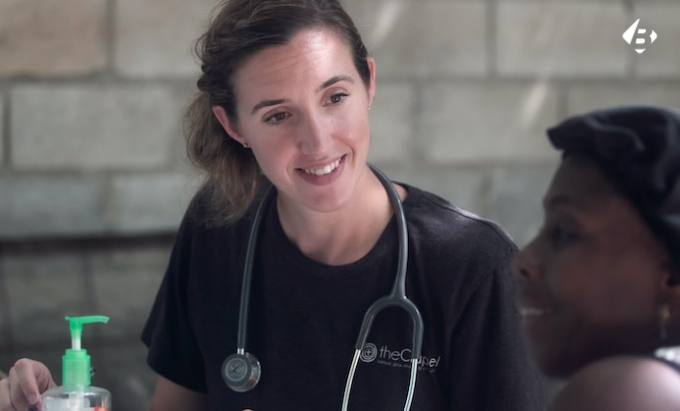
In a complex and ever-evolving healthcare landscape, navigating the system alone can be overwhelming. For individuals facing illness, injury, or chronic conditions, having strong advocates and caregivers by their side can make a world of difference in their health outcomes and overall well-being.
The Role of Health Advocacy:
Health advocates act as informed and empowered partners, helping individuals navigate the healthcare system effectively. They provide invaluable support in various areas, such as:
- Understanding diagnoses and treatment options: Advocates can research medical information, clarify complex terminology, and help individuals make informed decisions about their care.
- Communicating with healthcare providers: Advocates can effectively communicate questions and concerns to doctors, nurses, and other healthcare professionals, ensuring their voices are heard and needs are addressed.
- Navigating insurance and paperwork: Dealing with insurance companies and managing medical paperwork can be daunting. Advocates can help individuals understand their benefits, complete necessary forms, and appeal denied claims.
- Coordinating care: For individuals with complex health conditions, coordinating care across different specialists and healthcare providers is crucial. Advocates can ensure smooth communication and continuity of care.
- Providing emotional support: Facing a health challenge can be emotionally difficult. Advocates can offer a listening ear, provide emotional support, and connect individuals to support groups or resources.
The Impact of Caregiving:
Caregivers play a vital role in providing hands-on support and assistance to individuals requiring additional care. This can include:
- Daily living activities: Assisting with bathing, dressing, eating, and other daily activities allows individuals to maintain their independence and quality of life.
- Transportation and errands: Helping individuals with transportation to appointments, running errands, and completing household chores alleviates stress and allows them to focus on their health.
- Medical management: Reminding individuals to take medications, monitoring their condition, and recognizing potential health concerns ensures timely intervention and better management of their health.
- Emotional support: Providing companionship, emotional support, and a sense of belonging can significantly improve mental well-being and quality of life for individuals facing health challenges.
The Benefits of Advocacy and Caregiving:
Both health advocacy and caregiving offer numerous benefits for individuals, families, and the healthcare system as a whole:
- Improved health outcomes: Studies have shown that individuals with strong advocacy and caregiving support experience better health outcomes, reduced hospitalizations, and improved adherence to treatment plans.
- Reduced burden on families: Sharing the workload and responsibility of caregiving allows families to cope better with the challenges of illness and maintain their own physical and mental well-being.
- Lower healthcare costs: Effective advocacy and caregiving can help individuals utilize healthcare resources more efficiently, leading to lower costs for both individuals and healthcare systems.
- Enhanced patient satisfaction: Feeling informed, empowered, and supported throughout their healthcare journey contributes to increased patient satisfaction and positive experiences.
Building a Strong Support System:
Building a strong support system of advocates and caregivers is essential for navigating the healthcare system effectively and managing health challenges. Here are some helpful resources:
- National Family Caregiver Support Program: Provides information, resources, and support to caregivers.
- Patient Advocate Foundation: Offers free assistance to patients with insurance and healthcare billing issues.
- National Cancer Institute: Provides comprehensive information and resources for cancer patients and their families.
- American Heart Association: Offers educational resources and support groups for individuals with heart disease and their caregivers.
Investing in the Future:
In today’s healthcare landscape, the role of health advocacy and caregiving is becoming increasingly crucial. By recognizing their importance, providing resources and support, and fostering a culture of collaboration, we can ensure that individuals receive the care they need and deserve.
This article shines a light on the often underestimated power of health advocacy and caregiving in navigating the complexities of the healthcare system. It emphasizes the invaluable role these support systems play, not only in terms of improving health outcomes but also in reducing the burden on families and contributing to overall patient satisfaction. A timely reminder of the importance of a strong support network in healthcare.”
Navigating the healthcare system can be overwhelming, and this article aptly highlights the critical role of health advocates and caregivers in providing support and guidance. The comprehensive benefits, from improved health outcomes to lower healthcare costs, underscore the need for recognizing and investing in these support systems. A compelling call to foster a collaborative culture that prioritizes the well-being of individuals facing health challenges
The article effectively underscores the multifaceted impact of health advocacy and caregiving, showcasing how these support systems extend beyond physical care to emotional well-being and improved health outcomes. The emphasis on resources like the National Family Caregiver Support Program and the Patient Advocate Foundation provides tangible avenues for individuals and families to access crucial assistance. A well-rounded exploration of the subject
Navigating the healthcare system can be overwhelming, and this article aptly highlights the critical role of health advocates and caregivers in providing support and guidance. The comprehensive benefits, from improved health outcomes to lower healthcare costs, underscore the need for recognizing and investing in these support systems. A compelling call to foster a collaborative culture that prioritizes the well-being of individuals facing health challenges